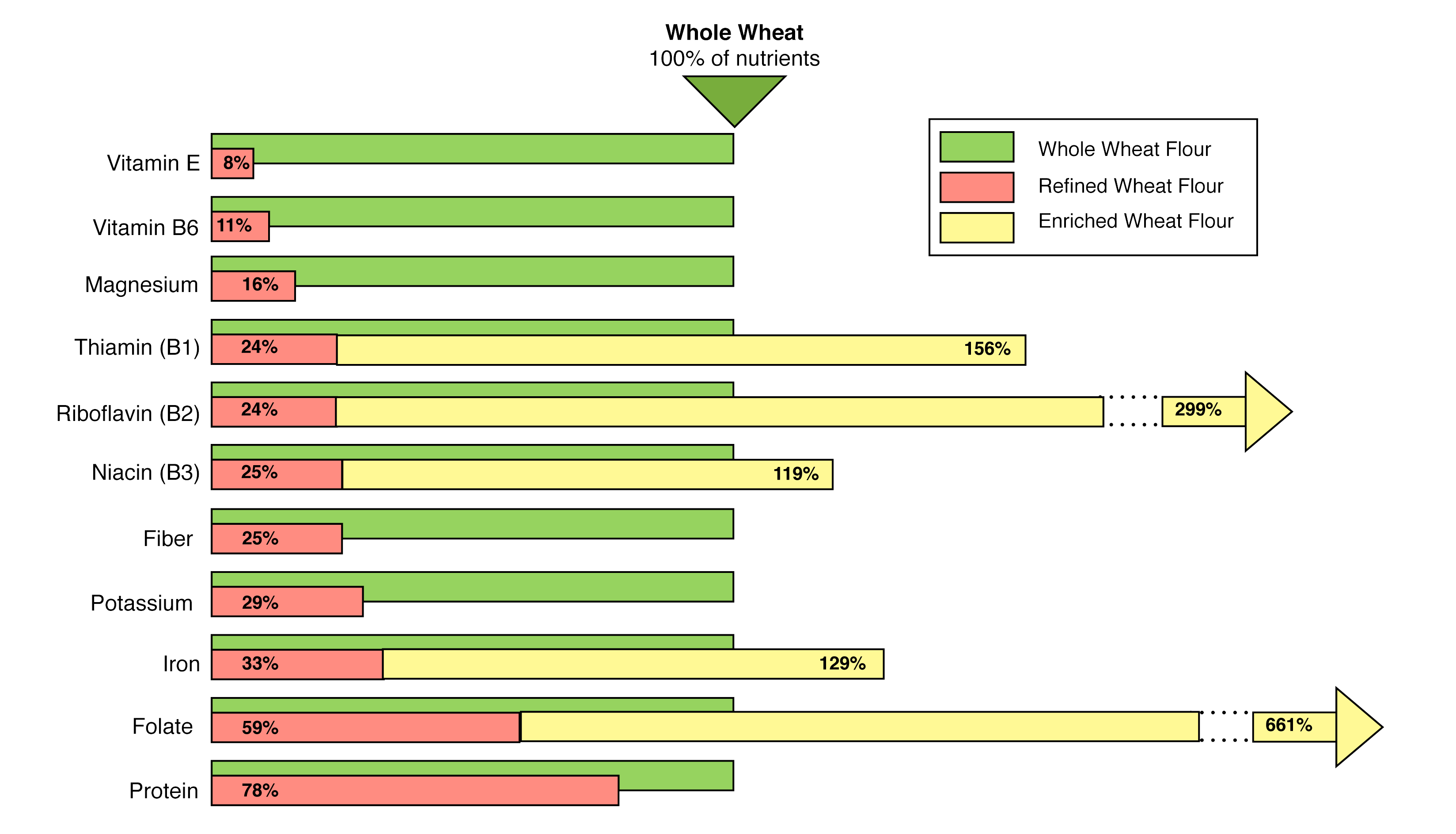Share This
Whole grains are some of the most nutrient-packed foods found in nature and are incredibly important for preventing diet-related disease. In a review published in Circulation, researchers deemed whole grains and other seeds as “natural health capsules, where the synergistic interaction of their many bioactive constituents may all favorably influence human physiology.” The researchers also noted that “it is often difficult to tease out the effects of the individual components of a whole food,” indicating that seeds are best eaten in their whole form (as whole grain ingredients are), rather than being refined into individual components.
According to USDA reports, “if whole grains were consumed in the amounts recommended in the Food Patterns, whole grains would provide substantial percentages of several key nutrients, such as about 32 percent of dietary fiber, 42 percent of iron, 35 percent of folate, 29 percent of magnesium, and 16 percent of vitamin A.” Now double that and imagine the nutrient contribution if we made all of our grains whole.
Many misguided dieters downplay the importance of whole grains because they “get enough fiber from vegetables and nuts.” What’s missing from the conversation is that fiber is not the only benefit that whole grains bring to the table. For example, a report from the American Institute of Cancer Research and the World Cancer Research Fund found that about 3 servings of whole grain foods per day reduces the risk of colorectal cancer by 17%, and that the evidence for whole grains is actually stronger than the evidence for fiber alone, due to whole grains’ other bioactive compounds (like vitamin E, selenium, copper, zinc, lignans, phytoestrogens, and phenolic compounds).
Vitamins and minerals are another area where whole grains prove to be more than the sum of their parts. Niacin, or vitamin B3, is one of the many essential vitamins that are naturally present in whole grains. When the healthful bran and germ of whole wheat are removed to make refined wheat, 75% of the grain’s natural niacin is stripped away. When this refined wheat is enriched, niacin and a handful of other vitamins get added in, but not in their natural proportions. Instead, enriched wheat has 19% more niacin and more than six times the folate of whole wheat. The more the merrier, right? Not quite.
Time and time again, nutrition research shows that we’re not adept at outsmarting mother nature or taking foods apart and putting them back together again. New research from the NIH suggests that consuming niacin, also known as vitamin B3, in higher than recommended amounts may be linked with an increased risk of cardiovascular disease. When the body takes in too much niacin, it gets converted into molecules called 4PY and 2PY. This research found that people with the highest levels of 4PY and 2PY were significantly more likely to develop cardiovascular disease than those with the lowest levels. Further, other research has suggested that high concentrations of unmetabolized folic acid (such as from synthetic folate used in supplements and enriched grains) at birth may be linked with a higher risk of food allergies later in life.
Supplemental vitamins and minerals are incredibly important for people with special health needs, such as during pregnancy. For everyday nutrition however, an overall balanced diet will check a lot of your nutritional boxes naturally. Folate, in particular, has been singled out as a nutrient of concern, but if Americans eat a diet full of whole grains (which would provide 70% DV for folate) and top it off with leafy greens and legumes, other natural sources of folate, then it should be no struggle to get the recommended amount of folate. Grains and starches were never meant to provide 100% of all necessary nutrients, but as part of an overall balanced diet, whole grains will certainly get us much closer than alternative choices, with fewer opportunities for adverse outcomes.
Rather than reduce grains to their individual constituents and attempt to meddle with their “optimal” vitamin and mineral proportions, nutrition science humbly reminds us that whole grains themselves appear to already be packaged in their optimal form. (Kelly)


Comments
Add a Comment